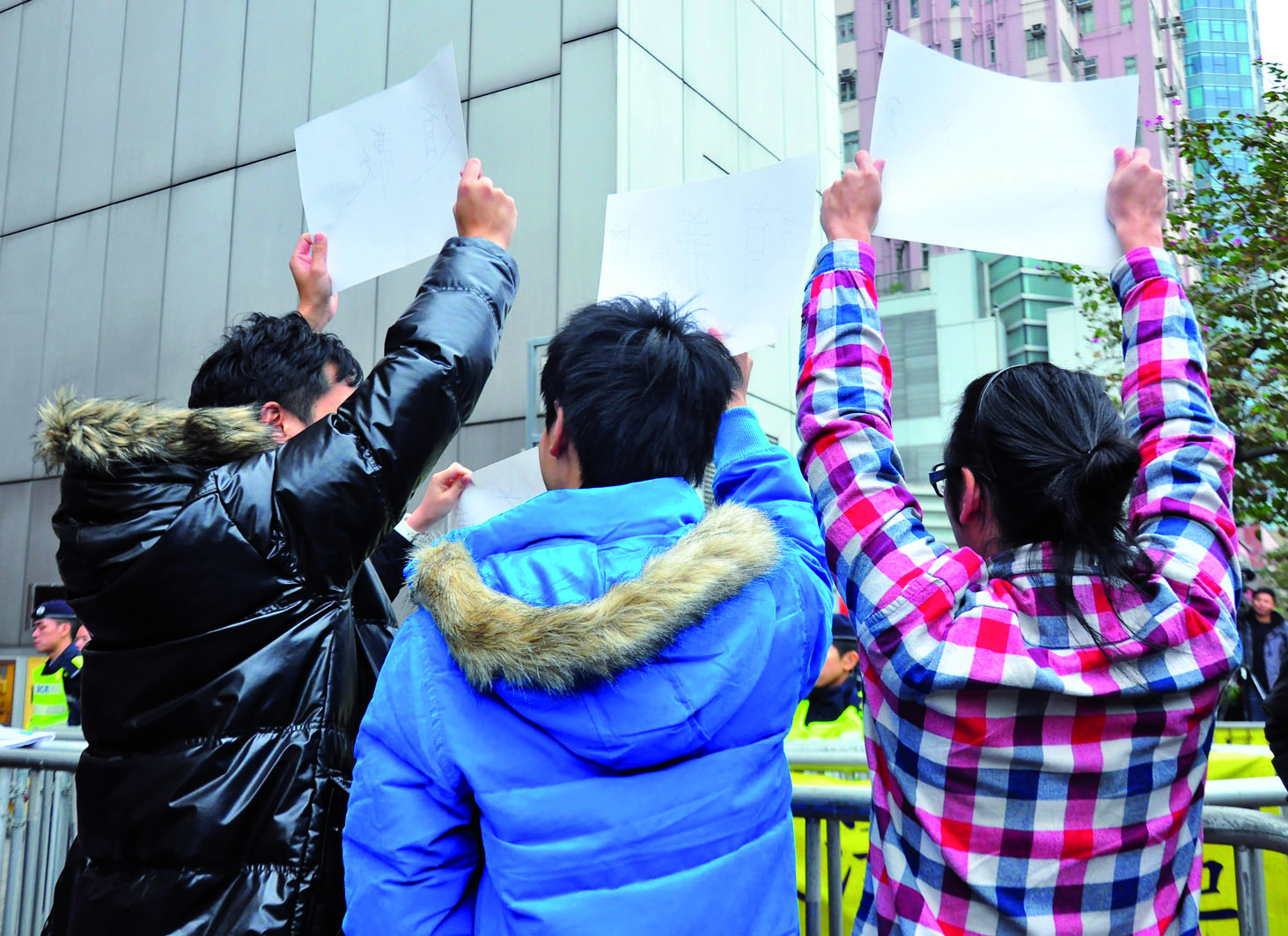Hong Kong people struggle to define and defend their mother tongue
By Stephanie Cheng, Vicki Yuen
On Lunar New Year’s Eve, when most people were eating reunion dinners with their families, more than a hundred people braved the cold and took a “walk” outside the Liaison Office of the Central People’s Government in Western.

Some brought their pet dogs, others brought dog toys and dog banners. They were not marking the Year of the Dog; they were angry and they were protesting.
Their fury was directed at Kong Qingdong, professor of Chinese studies at Peking University, who said during a webcast interview that most Hong Kong people are dogs and those who do not speak Putonghua are bastards. “Mandarin is a language. Cantonese is a dialect. Those speaking Mandarin have no duty to learn Cantonese,” Kong said on the show.
Miss Pang, a university student who had never joined such a demonstration before, stood with a homemade banner that read “Kong Qingdong apologise”. “They should respect us. Cantonese is not inferior to Mandarin,” she said.
The protest was also a first for 60-year-old Sunny Chan, who could hardly contain his fury. “Kong is the descendant of Confucius? Rubbish!” he exclaimed. “Cantonese is local culture, whereas Putonghua is only a medium for communication and exchange. They should not eliminate local culture.”
Whether Cantonese is a language or a dialect is a matter for debate. The spoken forms of regional variations of Chinese are often mutually unintelligible and even among linguists there are no universal or standardised criteria to distinguish between a language and a dialect.
Ben Au Yeung Wai-hoo, senior instructor of the Department of Chinese Language and Literature at the Chinese University of Hong Kong, believes speakers can be regarded as speaking either a language or a dialect. There is no contradiction between the two.
Au Yeung says “language” reflects a more significant and general identity in a wider context while “dialect” is more “intimate”, representing speakers as part of a smaller community. Viewed this way, Au Yeung says Cantonese may be regarded as a dialect of the Chinese language.
For the protesters outside the Central Liaison Office, the dispute over whether Cantonese is a language or a dialect is more than a linguistic or cultural issue. It is a political battle. As the linguist Max Weinreich put it, “language is a dialect with an army and navy.”







































